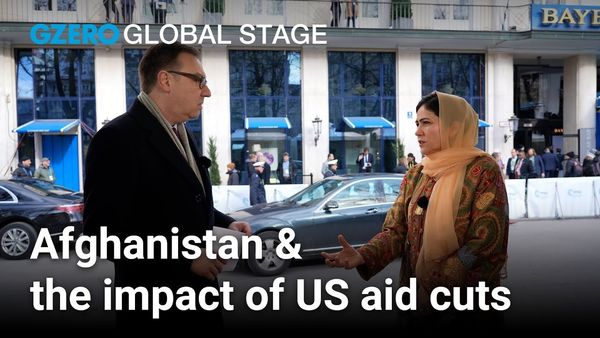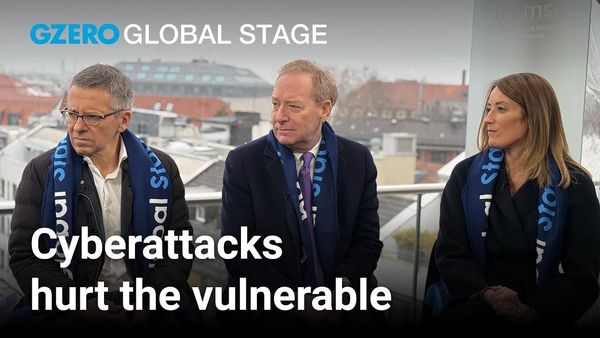Artificial intelligence is no longer a distant vision of the future—it’s here, and it’s transforming the way we live, work, and innovate. At the 2025 World Economic Forum in Davos, Switzerland, our Global Stage panel brought together some of the world’s brightest minds to discuss the profound impact AI could have on global growth, society, and infrastructure.
Our thought-provoking panel discussion, moderated by Becky Anderson, Anchor & Managing Editor of CNN Abu Dhabi, featured Ian Bremmer, President and Founder of Eurasia Group and GZERO Media; Nadia Calviño, President of the European Investment Bank; Ngozi Okonjo-Iweala, Director General of the WTO; Brad Smith, Vice Chair and President of Microsoft; and Peng Xiao, CEO of G42. They shared unique insights into the opportunities and challenges of the AI revolution.
We’ve entered a new phase of the AI conversation, moving beyond debates over whether it will save or destroy humanity. Instead, the focus has shifted to the ways this powerful technology, when used correctly and ethically, can enhance human life. From revolutionizing healthcare and expediting scientific breakthroughs to creating infrastructure investment opportunities, AI holds the potential to contribute up to $20 trillion to global GDP over the next five years.
Geopolitical competition is also heating up. While the US-China rivalry dominates headlines, the Middle East—particularly the UAE—is emerging as a significant player in the AI space with increasing investments and innovations.
As Microsoft's Brad Smith noted during the expert panel discussion, AI could become as essential as electricity. However, ensuring its benefits are equitably shared across all societies is vital. Achieving this requires collaboration between governments, multilateral organizations, and private sector leaders.
Watch the full discussion now for our panel's insights on AI's future, and how it is expected to transform our economy society by 2030.
- Ian Bremmer: On AI regulation, governments must step up to protect our social fabric ›
- For AI access for all, investment is the key, says Microsoft's Brad Smith ›
- What impact will AI have on gender equality? ›
- AI's evolving role in society ›
- The AI economy ›
- We're on path to building an intelligence grid, says Peng Xiao - GZERO Media ›


















